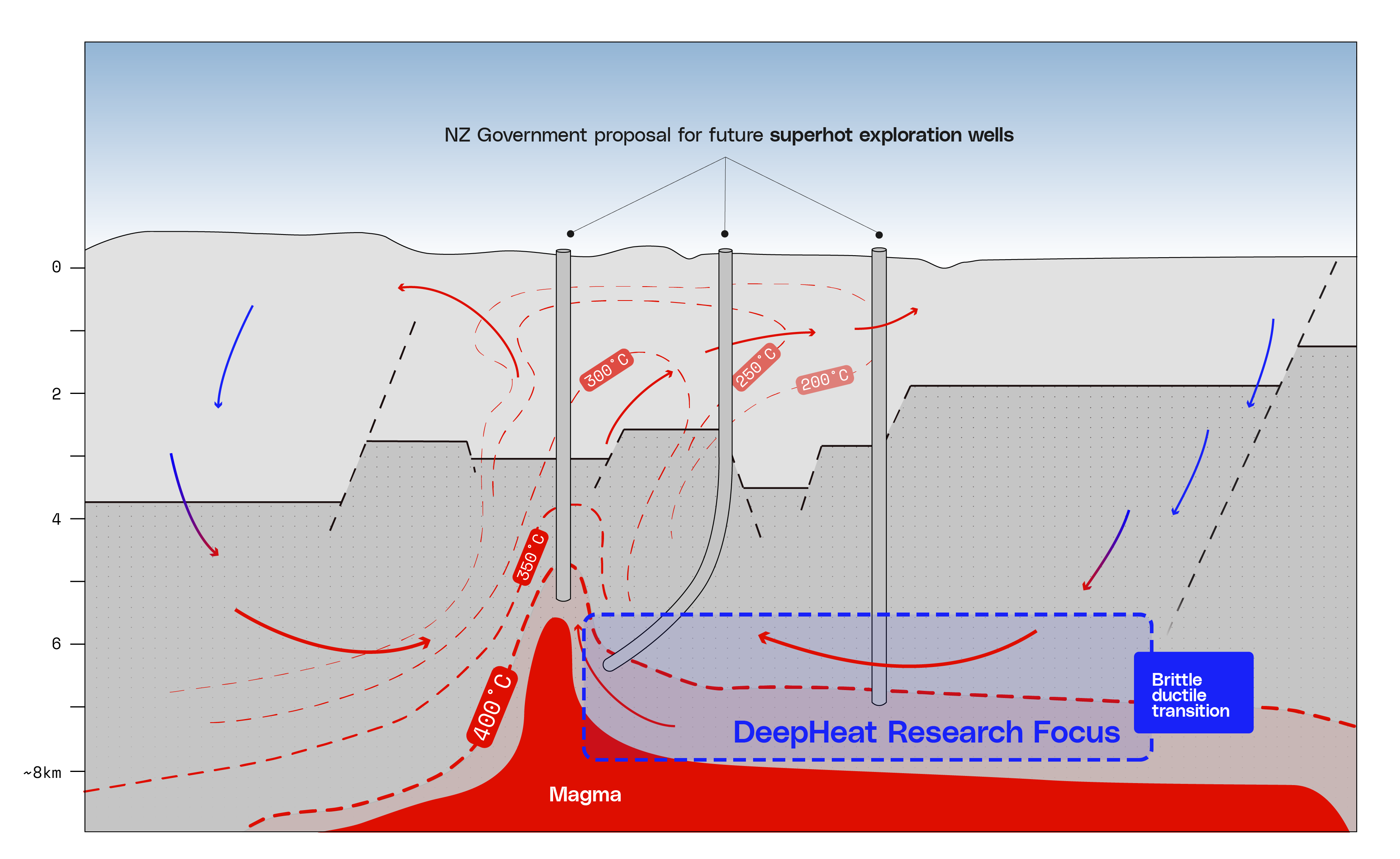New Zealand’s electricity demand is projected to rise by 82% by 2050. At the same time, rising costs and dependence on imported fuels and intermittency energy generation are creating energy insecurity. While wind, solar, and conventional geothermal are vital, they cannot alone provide the reliable, affordable, and low-carbon baseload power required. To secure our energy future, New Zealand must pursue new options for round-the-clock renewable generation.
Superhot geothermal energy offers a transformative opportunity. By tapping into reservoirs deeper in the Central Taupō Volcanic Zone, we could unlock around 30,000 GWh of continuous renewable power each year. Realising this potential requires new knowledge at the frontier of science and engineering. Our DeepHeat Programme will address this challenge by investigating how superhot fluids move at depth at the interface between magma and rocks, developing AI-driven reservoir models, conducting fracture network experiments, and assessing wellbore performance. We will also advance stimulation and well-integration technologies, evaluate energy and economic scenarios, establish environmental monitoring frameworks, and co-design Māori-led business models to ensure long-term sustainable benefits.
Co-lead scientist Isabelle Chambefort says, "These outputs are parallel to the government’s $60 million drilling programme and the renaissance of geothermal exploration in New Zealand. They strengthen our chance to achieve a fast global development of superhot geothermal, setting New Zealand as the ideal international test bed location.” Co-lead scientist Saeid Jalilinasrabady adds,
"Superhot geothermal could redefine New Zealand’s energy system. By advancing the science of fluid movement in extreme conditions, we can unlock a world-first clean energy source that strengthens energy security, accelerates decarbonisation, and positions New Zealand as a global leader in sustainable innovation.”
Our collaborators: Our team brings together leading researchers from Earth Sciences New Zealand, Victoria University of Wellington, and the University of Auckland. The programme will work alongside a wider network of scientists, engineers, AI experts, and Māori advisors, as well as international partners from the USA, Switzerland, Japan, and Iceland. Collaboration will be strengthened through hui, joint work with drillers, well designers and engineers, and a dedicated publication hub to ensure results are shared openly and widely.

